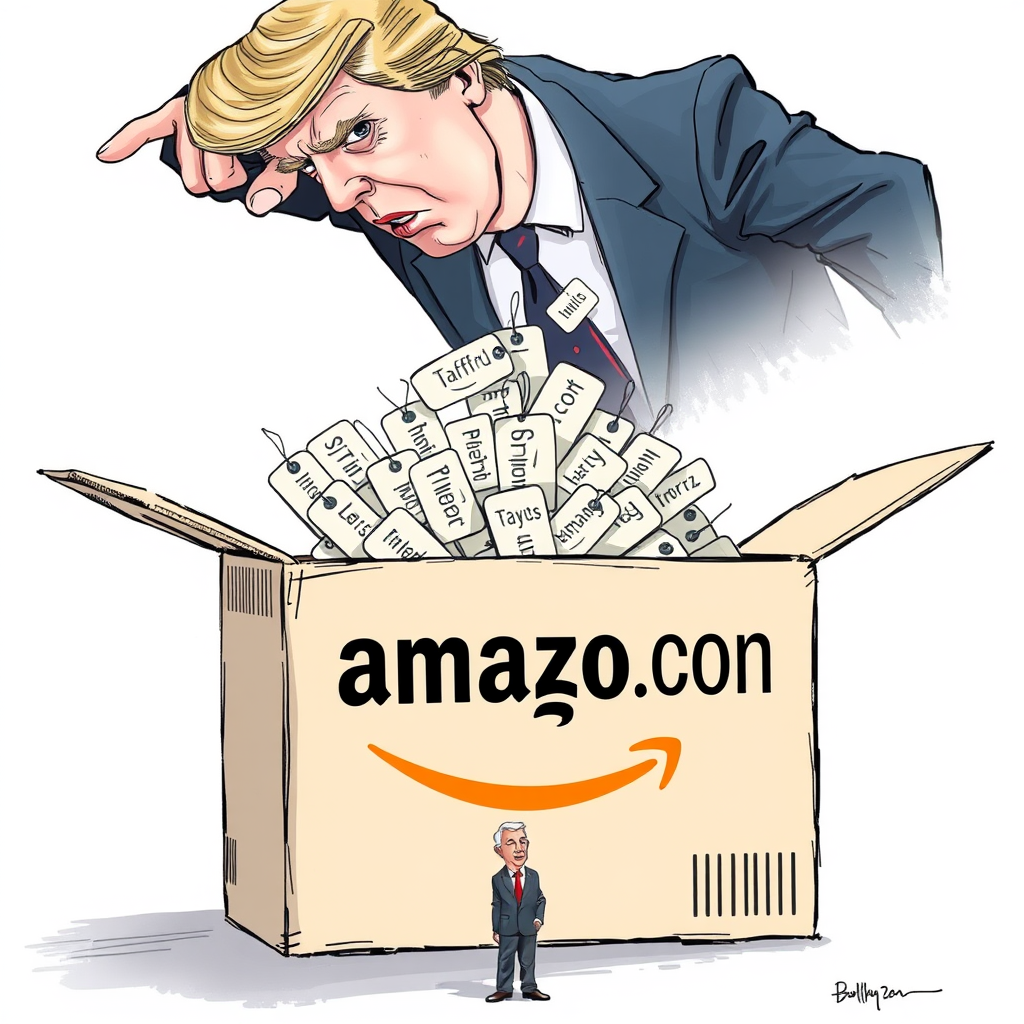Bezos Slammed as Amazon Caves on Tariffs

Amazon swiftly retreated from a plan to display the impact of President Trump’s tariffs on product prices following a sharp rebuke from the White House, sparking criticism that the company prioritized political appeasement over transparency for its customers. Initial reports, originating from Washington Post reporter Jeff Stein on X (formerly Twitter), indicated Amazon was considering outlining the tariff component of prices on its main website. However, an Amazon spokesperson quickly clarified that the idea was never seriously considered for the primary site, only potentially for Amazon Haul – a newer platform aimed at competing with fast-fashion retailers like Temu and Shein.
The White House responded with immediate and forceful condemnation, labeling the potential move “hostile.” This prompted Amazon’s rapid reversal, fueling accusations of caving to political pressure.
The incident ignited a firestorm of commentary online. Critics lambasted Amazon and its founder, Jeff Bezos, with some resorting to harsh personal attacks. MSNBC’s Elise Jordan noted the brief hope that Amazon might prioritize customer information, while former Washington Post writer Matt O’Brien delivered a particularly scathing assessment of Bezos. Others, like University of Massachusetts economics professor Arin Dube, framed the situation as a demonstration of Trump’s economic strategy – leveraging pressure on corporations to pass on import costs to consumers.
Notably, several commentators pointed to Amazon’s existing financial ties to the Trump family, including payments to Melania Trump and the presence of “The Apprentice” on Prime Video, suggesting the company’s reluctance to challenge the administration was unsurprising. Opposition researcher Tyson Brody highlighted this apparent hypocrisy.
The incident underscores the complex interplay between corporate interests, political pressure, and consumer transparency. While Amazon maintains it never intended to implement the tariff display on its main site, the swift backtracking following the White House’s criticism raises questions about the company’s willingness to stand up to political pressure, even when it could benefit consumers with greater price clarity. It’s a clear demonstration of how easily a corporation can be perceived as prioritizing political favor over principle, particularly when significant financial ties are already in place.